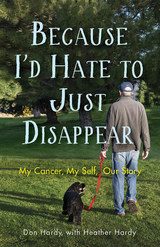
Because I’d Hate to Just Disappear is a portrait of a husband and wife, Don and Heather Hardy, thrown into the physical and emotional machinery of Don being diagnosed with leukemia and going through chemotherapy and treatment over a period of close to two years.
In this thoughtful and exquisite account, Don and Heather narrate Don’s struggle in real-time. Disarmingly honest, they recount each intimate stage of a couple living through cancer together, the mental and physical struggles, the humor and visceral emotion to reveal how two very different personalities shape—and are shaped by—the experience of cancer and its treatment. Through these moments emerge a constant flow of human kindness and discovery that lifts them each day.
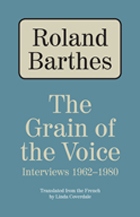
This book brings together the great majority of Barthes’s interviews that originally appeared in French in Le Figaro Littéraire, Cahiers du Cinéma, France-Observateur, L'Express, and elsewhere. Barthes replied to questions—on the cinema, on his own works, on fashion, writing, and criticism—in his unique voice; here we have Barthes in conversation, speaking directly, with all his individuality. These interviews provide an insight into the rich, probing intelligence of one of the great and influential minds of our time.
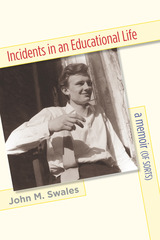
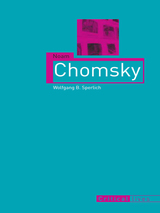
Beginning with Chomsky’s formative years as a sixteen-year-old student at the University of Pennsylvania, Sperlich traces his education in linguistics and politics in its rich historical context. He explores Chomsky’s main intellectual influences, particularly in language studies, and charts his strained relationship with mainstream American academia. Sperlich also offers an informed overview of Chomsky’s landmark linguistic contributions as a comprehensive introduction to his work, and he explains the latest developments in Chomskyan linguistics and how they influence research in fields as varied as neuroscience, biology, and evolution. Sperlich is equally attentive to Chomsky's political activism: through Sperlich’s account we follow Chomsky from his pacifist-anarchist lectures and writings of the 1950s and 1960s to his seminal 1988 treatise, Manufacturing Consent, and his relentless criticism of the American government over two decades.
A compact and rich biographical study, Noam Chomsky is a brilliant introduction to one of the most polarizing intellectuals of our time, a thinker whose words continue to pierce the heart of public discourse.
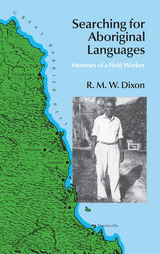
As he made his way through northern Australia, Dixon was dependent on rumors of Aboriginal speakers, the unreliable advice of white Australians, and the faulty memories of many of the remaining speakers of the languages. Suggestions of informants led him on a circuitous trail through the bush, to speakers such as the singer Willie Kelly in Ravenshoe, who wanted his recordings sent to the south, "where white people would pay big money to hear a genuine Aborigine sing" and Chloe Grant in Murray Upper, who told tales in four dialects of digging wild yams, of the blue-tongue lizard Banggara, and of the arrival of Captain Cook. Dixon tells of obtaining the trust of possible informants, of learning the customs and terrain of the country, and of growing understanding of the culture and tradition of his subjects. And he explains his surprise at his most unexpected discovery: that the rich oral tradition of the "primitive" Aborigines could yield a history of a people, as told by that people, that dates to almost ten millenia before.

READERS
Browse our collection.
PUBLISHERS
See BiblioVault's publisher services.
STUDENT SERVICES
Files for college accessibility offices.
UChicago Accessibility Resources
home | accessibility | search | about | contact us
BiblioVault ® 2001 - 2024
The University of Chicago Press









